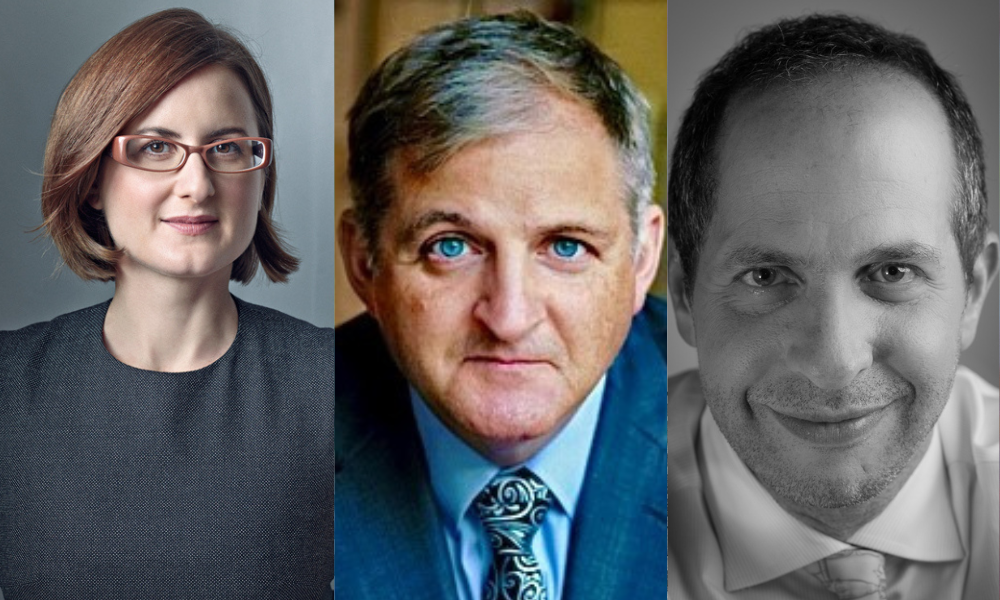
Criminal Lawyers' Association endorsed the coalition in upcoming LSO bencher elections

Maintaining self-regulation of Ontario’s legal profession is said to be one of the reasons behind the decision by the Criminal Lawyers’ Association (CLA) to endorse the Good Governance Coalition in the 2023 Law Society of Ontario Bencher elections.
The Good Governance Coalition launched in October and announced its aim to return good governance and decorum to Convocation and curb the influence of the FullStop slate, a 22-member group of benchers who initially ran under the StopSOP banner to oppose the LSO’s statement-of-principles requirement. The CLA recently announced that it “enthusiastically endorses” the coalition. Its board of directors voted to support the group of bencher candidates because they represent “the best interests of the vast majority of our organization,” the CLA said.
The coalition’s interests align with those of the CLA members in three respects, says Christine Mainville, co-chair of the CLA media relations committee.
“One of them is that we see a risk of losing the ability of our profession to self-regulate if we do not have good governance,” she says. “That is very important for the criminal defence bar because it ensures the independence of the profession, and the independence of the bar is very critical to criminal defence lawyers.”
“Another is a need to focus on access to justice issues, which we have not seen because of various distractions in the past term, and a denial by some current benchers of the existence of systemic racism, which is something that criminal defence lawyers are very attuned to.”
The third element of alignment is the CLA’s historic support for equity, diversity, and inclusion measures, which the coalition supports, says Mainville.
“I am thrilled the CLA has endorsed the GGC,” says Jonathan Rosenthal, an incumbent bencher and coalition member. “Since the coalition launched in October, we’ve gained support and momentum from lawyers and paralegals across Ontario. I think a major reason why is they know our ability to self-regulate is at stake.”
“Self-regulation is paramount for an independent criminal defence bar. There is no doubt in my mind that we will lose the privilege of self-regulation should the GGC not be elected.”
Fellow bencher Sam Goldstein agrees that 2023 is a “watershed” election for the law society. But to him, it is between a group who believe the regulator’s place is to drive social change, and another who believes the law society, as a professional regulatory body, should focus on its legislated function of discipline and competence.
“By endorsing the self-proclaimed Good Governance Coalition, the Criminal Lawyers’ Association is taking sides in a culture war, more interested in defending causes than client’s rights,” says Goldstein.
Section 4.1 of the Law Society Act says that “it is a function” of the LSO to ensure that Ontario lawyers meet the appropriate “standards of learning, professional competence and professional conduct.” And s. 4.2 sets out principles that the law society “shall have regard to” in carrying out its functions, duties, and powers under the Act, including “to maintain and advance the cause of justice and the rule of law,” “to facilitate access to justice,” and “protect the public interest.”
Goldstein says that s. 4.2 is being used as a “trojan horse” by “dogmatic progressives” to push “intolerant views” on the legal profession. One example being the statement of principles, which he was elected to repeal in 2019, he says.
Section 4.1 should be amended so that it does not say “it is a function,” but rather, “it is the function” of the LSO to ensure that Ontario lawyers meet the appropriate “standards of learning, professional competence and professional conduct,” says Goldstein. The act should clarify that the primary goal or purpose of the LSO is to look after competence and discipline, he says.
“We are supposed to govern in the public interest. What is in the interest of the public is competent and ethical lawyers.”
Goldstein is not a member of FullStop but was elected as part of the StopSOP slate in 2019, and he is running independently in the 2023 bencher elections.
There are currently 40 lawyers and paralegals listed as candidates on the coalition’s website, which says the group’s members will vote independently and not as a bloc. The coalition also says that it supports establishing a law society working group to consider electoral reform “to prevent the running of slates in Bencher elections.”
“We recognize that all of our members hold different views,” says Mainville. “Obviously, not everybody has to agree with the position the CLA has taken, as an organization. But this is definitely not a question of culture wars or taking sides. And we respect people's opinions, including the diversity of opinions in our membership. But the board estimated that the position the association was taking represented the views of the majority of our members and aligned with the organization's priorities.”
Rosenthal says he congratulates the CLA, both for recognizing the importance of self-regulation and for being aware of the existence of systemic racism. The endorsement aligns with CLA’s stated purpose of being “a leading voice for criminal justice and civil liberties,” he says.
“I have witnessed the conduct of the FullStop in the last 3.5 years,” says Rosenthal. “The majority of the FullStop have done their best to disrupt the proper functioning of the LSO. They have twice now brought crowd-pleaser motions to reduce fees without ever considering the impact that would have on operations and lawyers across the province. Reducing fees would result in reduction in Law Society funding to law libraries and practice resource centres whose existence are so important to small firms and sole practitioners.”
“The LSO’s core mandate is professional regulation. Self-regulation is privilege. One we do not want to lose.”